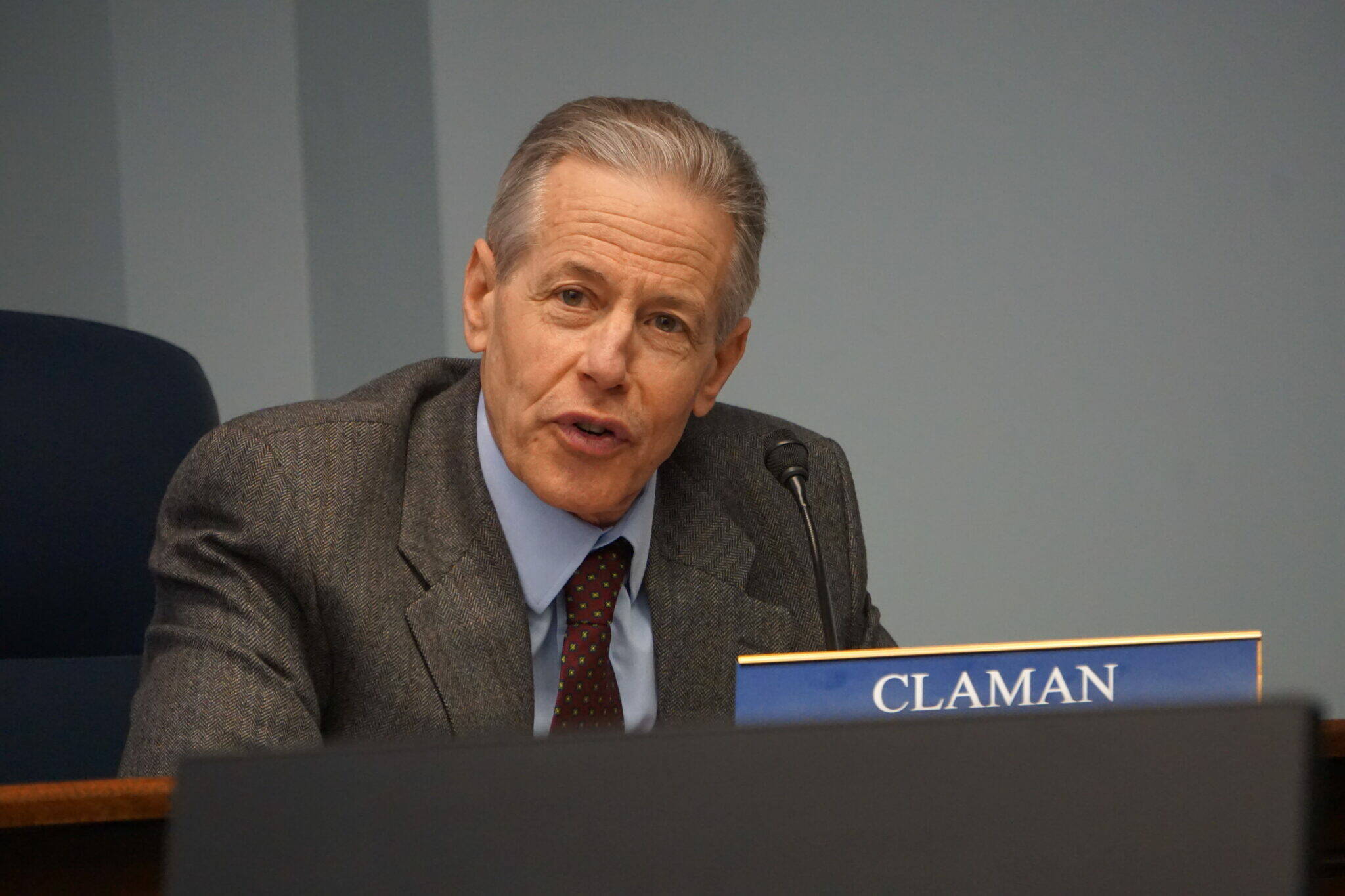The Alaska Senate is moving closer to approving a state constitutional amendment that would lower the number of votes needed to override a governor’s veto of a spending bill. The House would also have to approve an amendment before it could go to a public vote on final approval.
On Tuesday, the Senate State Affairs Committee passed Senate Joint Resolution 15, which would require two-thirds of the Legislature, or 40 votes, to override a spending veto, the same as the current threshold for vetoes of non-spending bills. The current spending-bill threshold is three-quarters of the Legislature, or 45 votes.
If that amendment had been in place on Monday, it wouldn’t have changed the Alaska Legislature’s failure to override Gov. Mike Dunleavy’s decision to veto a multipart education bill, but Sen. Scott Kawasaki, D-Fairbanks and chair of the State Affairs Committee, said the amendment “sort of got legs because of what happened with the governor’s veto.”
Sen. Matt Claman, D-Anchorage, proposed the amendment in February, and it was scheduled for Tuesday’s hearing last week.
“We’re the only state in the country that has a three-quarter override threshold for fiscal matters. And I think two-thirds is more than enough,” Claman said on Wednesday.
He said it’s a good policy to examine whether the government is working well.
The Alaska Legislature hasn’t overridden a governor’s veto since 2009, in part because of the fiscal threshold, which is the highest in the nation according to the National Conference of State Legislatures.
In January, lawmakers unsuccessfully attempted to overturn Dunleavy’s 2023 budgetary vetoes. That vote was 33-26 and would have also failed under the proposed threshold.
Enacting a constitutional amendment requires 14 votes in the Senate, 27 in the House, and approval by a majority of voters during a general election. Constitutional amendments are not subject to a veto.
If the same number of House members who opposed the education-bill veto override vote also were to oppose the proposed amendment, they would be able to block it.
SJR 15 has been referred to the Senate Finance Committee, which has not yet scheduled it for a hearing.
• James Brooks is a longtime Alaska reporter, having previously worked at the Anchorage Daily News, Juneau Empire, Kodiak Mirror and Fairbanks Daily News-Miner. This article originally appeared online at alaskabeacon.com. Alaska Beacon, an affiliate of States Newsroom, is an independent, nonpartisan news organization focused on connecting Alaskans to their state government.

